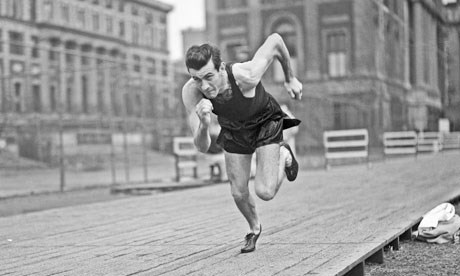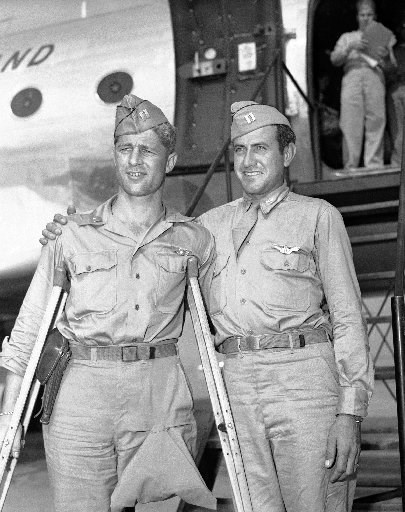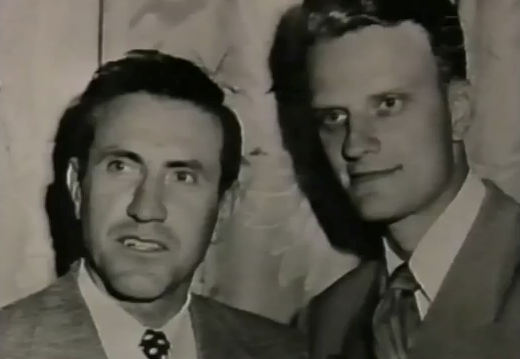 |
| Louis Zamperini Running before the Olympics (http://www.chnarmy.com/html/2011-01/10061.html ()) |
"Forgiveness means letting go of
the past." -Gerald Jampolsky.
Everyone has
done something that they have regretted before, whether it be borrowing
something and forgetting to bring it back, or cheating in school. Many people
feel the need to hold on to those mistakes with them for their lives, but
forgiveness is required to move on in life, and Louis Zamperini is a perfect
example. Louis Zamperini was born in 1917, in New York, to the son of two
Italian Immigrants. Due to his wild and erratic behavior, such as running
around town naked, the family decided to move from New York to Torrance,
California. There Louis became a troublemaker that pulled pranks on every
single person in the miniscule town. His brother Pete and he ran around town,
arousing trouble and stealing and looting stores. After years of troublemaking,
his brother Pete introduced him to running. In the beginning, he was terrible,
but through his own determination and desire to be acknowledged by the people
in his town, Louis became the star track and field runner at his high school, and
soon was invited to the 1936 Olympics. He only placed 8th,
but began preparing for the 1940 Olympics, only they never came. World War Two had
started and Louis was joined the army as a bomber, stationed in Hawaii. On one
disastrous bombing mission, Zamperini's plane crashed, instantly killing nine
of the twelve people on board. Stranded in the middle of the Pacific Ocean for
the next 47, the men had no other choice but to wait for rescue, with one man dying
on day 33. Zamperini and the other survivor were captured by the Japanese on
day 47, leading to another two years of torture in the Prisoner of War camps.
After the war left, he found Christ, feeling "reborn" and soon started to
spread Christ throughout the United States as a public speaker. A hero must put
himself in front of others. They must also not think about fame, think humbly
of themselves, and care for others. Louis Zamperini fits all those requirements
and more with his determination and ability to forgive, traits that make him a
true hero.
 |
| (http://www.dailycamera.com/recreation-columnists/c ()) |
Louis Zamperini's determination even
through the bleakest moments of his life is a characteristic that makes him a
true hero. In 1941, Louis Zamperini enlisted in the army, drawing many
hardships toward him. "Zamperini enlisted in the US Army after graduation,
in 1941. He trained as an Army Air Corps bombardier in the Pacific theatre. In
May 1943, Zamperini's B-24 went down in the Pacific and he and two other
survivors (one would eventually perish on day thirty-three) lived at sea for
forty-seven days before being stranded in the Marshall Islands, where they were
picked up by the Japanese and transferred to a POW (prisoner of war)
camp;" (Ann). Although Louis was plane wrecked for 47 days, his will
was unbreakable and he never complained about being stranded in the middle of
the sea, but instead, caught fish, birds, and even occasionally small sharks to
survive, never giving up to the harshness of the wild. When Louis crashed,
his raft didn't have most of the essential tools that a life raft should have.
Instead of whining about it, he decided to deal with it while most people
would've have immediately given up and lost all hope of living. Also, during
his stay in the Japanese prisoner of war camps, he continued to keep his
determination to live. "Over more than two years' imprisonment, Lou was
singled out for particular attention. The Bird broke his body but never his
will, which so infuriated him that he made the punishment ever
harsher. In addition to the daily beatings, usually with a belt and the heavy
steel buckle aimed at Lou's head, he once forced the prisoners at gunpoint to
lie face-down in feces," (Wooding). Although "The Bird" singled Louis out and beat him
down every single day, Louis never gave up or gave in to The Bird's harsh
ways. Every day, The Bird would torture Louis and physically abuse him,
but he never gave in and held a certain line of defiance to The Bird showing
that "The Bird" wasn't in control. Louis Zamperini's plane crashing, and being
stuck on a raft, having to take care of not only himself but for two others is
a strong example that he is a hero. Louis determination throughout his life not
only kept him alive but kept others alive as well.
 |
| (http://www.billygrahamlibrary.org/pgview.aspx?pid= ()) |
Louis
forgiveness of other later in his life also proves that he is a true hero.
After being freed from the prisoner of war camps in Japan, Louis Zamperini
first held a grudge but later learned how to move on, "Before Louie left
Sugamo, the colonel who was attending him asked Louie's former guards to come
forward. In the back of the room, the prisoners stood up and shuffled into the
aisle. They moved hesitantly, looking up at Louie with small faces. Louie was
seized by childlike, giddy exuberance. Before he realized what he was doing, he
was bounding down the aisle. In bewilderment, the men who had abused him
watched him come to them, his hands extended, a radiant smile on his
face." (pg. 379-380 Unbroken). Before, Louis wanted to kill the
prison guards that had ruined his life in Japan, but after discovering
Christ, he immediately changed his point of view, forgiving the prison guards,
showing his forgiveness. Even after all of the pain and sorrow the
prisoners had made him go through, he was still able to find a way to forgive
them thanks to his new belief in Christ. Another example was how he discovered
Christ and forgave everything and everyone that had hurt him before, saving his
marriage: "Zamperini turned to alcohol and almost destroyed his marriage.
His wife, still fighting to salvage her marriage and turn her
husband's life around, brought Zamperini to a religious service of Pastor Billy
Graham's. Zamperini turned a corner, and decided to stop drinking, smoking, and
focusing on the war. Instead, he found a renewed faith, joining Graham's
mission and speaking publicly about forgiveness--it became his career.
Zamperini travelled to Japan, where he sought out many of his captors, speaking
to them of his forgiveness and his faith, and in several instances, speaking
for clemency on their behalf," (Ann). After the war, Louis met with
his prison guards that had tortured him every day. Instead of hurting
them, Louis forgave them, telling them about how he followed Christ now, saying
he wouldn't hurt them, showing how much he has evolved. Louis was able to
forgive his captors; even after all of the pain they had put him through and
didn't even resent them, instead he just told them about Christ and encouraged
them to follow Christ. Although Louis was freed from the Prisoner of War camp,
he wanted to return back to Japan to kill his captors, but he discovered
Christ, changing him by forgiving his past jailors. He vowed to return to Japan
to forgive his jailors and convince them to also follow Christ, a feat that not
any normal person would be able to do.
Throughout his life, his caring for others, forgiveness, and strong
willpower are traits that kept Louis Zamperini alive and made him the hero that
he is today. Zamperini's strong determination when he was stranded and when he
was captured in Japan show his amazing willpower to live. His forgiveness of
his captors is also a hero trait that many people don't have. Zamperini
inspires me because of the way he was able to forgive his captors. The next
time someone does something to anger me or anyone close to me; I won't resent
him but instead keep my feeling's neutral. Although Louis Zamperini did not live
the most innocent childhood, as an adult he became a phenomenal runner and a
great leader during the war. Zamperini may not be well known, but that's the
way that he likes it, humble. Many people will live their lives not knowing who
Zamperini is, but everybody should learn about Zamperini and they will realize
how truly lucky they are.
Cameron, Ann. "Louis Zamperini." Louis Zamperini
(2011): 1. Biography Reference Center. Web. 10 Dec. 2012.
Hillenbrand, Laura. Unbroken: A World War II Story of
Survival, Resilience, and Redemption. New York: Random House, 2010. Print.
"Louis
Zamperini - American Hero." Louis
Zamperini - American Hero. N.p., n.d. Web. 19 Dec. 2012.
"Louis Zamperini at 94, Is Still Unbroken After All
These Years." Louis Zamperini at 94, Is Still Unbroken After All These Years. N.p., n.d. Web. 10
Dec. 2012.
"Life of faith and forgiveness." Washington
Times [Washington, DC] 25 Feb. 2011: B06. Gale Biography In Context. Web. 10 Dec. 2012.
Zamperini, Louis, and David Rensin. Devil at My Heels: A
Heroic Olympian's Astonishing Story of
Survival as a Japanese POW in World War II. New York: Perennial, 2004.
Print.
Page created on 1/10/2013 12:00:00 AM
Last edited 1/10/2013 12:00:00 AM
